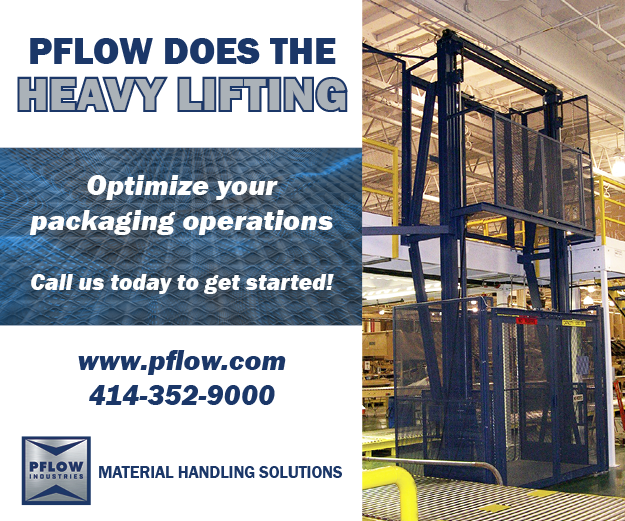The Role of Machine Builders in Medical Grade Cannabis is an Important Trend
By Matthias Moessinger, Senior Market Expert Pharma Solid at Syntegon Technology
Humans used the cannabis plant for medicinal and recreational purposes for a very long time before it was banned on a global scale due to its psychoactive ingredients and the varying composition and strength of the different applications. In fact, Napoleon Bonaparte was among the first to officially ban marihuana for his troops in Egypt as early as 1800, although his order was mostly ignored[1]. This “prohibition” led to the criminalization of cannabis and marihuana, which put an end to pharmaceutical research and the possibilities of using the ingredients to treat various severe diseases for a long time.
The relatively recent discussion about legalizing this plant has resulted in numerous case studies and field reports, which describe the beneficial effects of cannabis on human health. However, these usually do not fulfil the stringent requirements for a drug product approval by medicinal authorities in the Western world. This has led to a kind of “grey zone”, mainly of OTC products with either an unqualified or not clarified approval status. So if we assume that research, production and consumption of medical cannabis or marihuana is a good cause, the question for machine builders is: what can such companies do to help make medical grade cannabis available and, above all, safe for patients?
Dosage Forms and Manufacturing Processes are Key
One of the most important requirements is a profound expertise of manufacturing processes. Secondary packaging is not the big issue, although it is of course important to have good machines and processes available in the first place. But regulatory discussions mainly evolve around the manufacturing process itself. And this, in turn, concerns the dosage form of medical cannabis or marihuana.
Currently, the majority of medical marihuana is sold as buds or tinctures. This dosage form has the immanent risk of the biological product showing large variations in terms of quality and thus API content between batches. These variations lead to the trend towards more controlled or even synthetic pharmaceutical grade sources and dosage forms. Hence, a significant market share will be going into more precisely dosed tablets and capsules – i.e. the future market for prescription medicines (see figure 1).
Figure 1: Analysis of prescription drug pipeline based on Cannabinoid Receptor Agonist mechanism
© Syntegon Technology; source: GlobalData Drugs Database, accessed 01/2020
Highly Accurate Liquid Filling Required
The chemical and physical properties of the main ingredients – THC (Tretrahydrocannabidiol) and CBD (Cannabidiol) – make it rather difficult to formulate oral medicines such as capsules. Both molecules are highly lipophilic (not soluble in water). Hence, so-called nano emulsions have already been developed. They are supposed to improve the poor solubility and lead to a much better absorption in the intestine and therefore to an improved bioavailability[2]. However, the main way of use is still smoking. The ingredients of the plant extract need to be decarboxylized to have a medicinal effect in the human body. On the other hand, medicines need to maintain a narrow range of critical parameters such as content uniformity, i.e. how much active ingredient is in a single dose.
A possibility to bypass the obstacles of formulating solid dosage forms is to fill oily liquids or emulsions into hard shells. This requires a highly accurate liquid filling station, which can be found in the GKF hard capsule filling machine series from Syntegon Technology. The basis is a high-precision pump, which doses according to volumetric adjustment. Depending on the viscosity of the formulation, an accuracy of 2.5 percent relative standard deviation (RSD) can be achieved for the filling process; some products even run below 1 percent RSD. This is essential especially for clinical trial material and proven in extensive test runs with liquids derived from the medical grade cannabis plant. Here the limits were set at +/- 3 percent RSD. The most important feature is the pullback of liquid in the filling nozzles, which avoid drops at the end of the filling process. Furthermore, splashes are avoided by bottom-up filling (see image 1).
Image 1: The GKF capsule filling machines are equipped with a highly accurate liquid filling station.
© Syntegon Technology
Why Capsule Filling Parameters Matter
The station has two separated heating or cooling circuits, which enable the accurate tempering of temperature-critical medicinal products. Some formulations have a very high viscosity at ambient temperature and need to be heated up to a certain level to make them fillable as a liquid. The GKF systems can ensure +/- 1 °C in the product hopper, as well as in the filling block with the filling nozzles. The servo-driven filling pistons and adaptable nozzle diameter make it possible to minimize or even eliminate leakages for most viscosities with a normal processing range from 100 up to 12,000 cP (centipoise). For instance, in one trial series temperature was set at 50 °C and had to be kept in a range of +/- 5 °C. This temperature profile was logged automatically in the batch report of the machine control in order to demonstrate the smooth process.
To prevent the loss of valuable product and to keep the machine clean, it has a “no capsule no filling” feature, which ensures that the filling process is only started when both capsule cap and body are in place. The batch report and audit trail function of the control software ensure a reliable and auditable documentation of the production process. In addition to its high flexibility, a strong focus of this liquid product filling technology is on the cleanability of the machine parts and stations, amongst other reasons to avoid product carry-over.
More Than Just Liquid Capsule Filling
As an alternative to liquid filling, powdery plant extracts can also be filled into hard capsules on all GKF machines as a standard process. Moreover, tablet compression machines are also available to process medical grade cannabis products in solid formulations. In fact, companies around the globe are already processing or piloting formulations with active ingredients derived from the medical grade cannabis plant on capsule filling and tablet compression machines.
Image 2: Tablet compression machines such as the TPR series are also available to process medical grade cannabis products in solid formulations.
© Syntegon Technology
Exciting Opportunities
Although most medicinal products derived from medical grade cannabis still have a long way to go, experience from current projects and other successful innovations show that it is highly beneficial for formulation developers to team up with machine building companies at a very early stage. On the one hand, a lot of the required technologies already exist. On the other hand, it is never too early to develop new processes and control mechanisms for future requirements.
About Syntegon Technology
Syntegon Technology is a leading global process and packaging technology provider. Formerly the packaging division of the Bosch Group, the company, headquartered in Waiblingen (Germany), has been offering complete solutions for the pharmaceutical and food industries for over 50 years.
[1] Booth, M. Cannabis: A History, St. Martin’s Press, 2019; 76-77.
[2] Nanako, Y.; Tajima, M.; Sugiyama, E.; Sato, V.H.; Sato, H. Development of a Novel Nano-emulsion Formulation to Improve Intestinal Absorption of Cannabidiol, Medical Cannabis Cannabinoids 2019;2:35-42.










